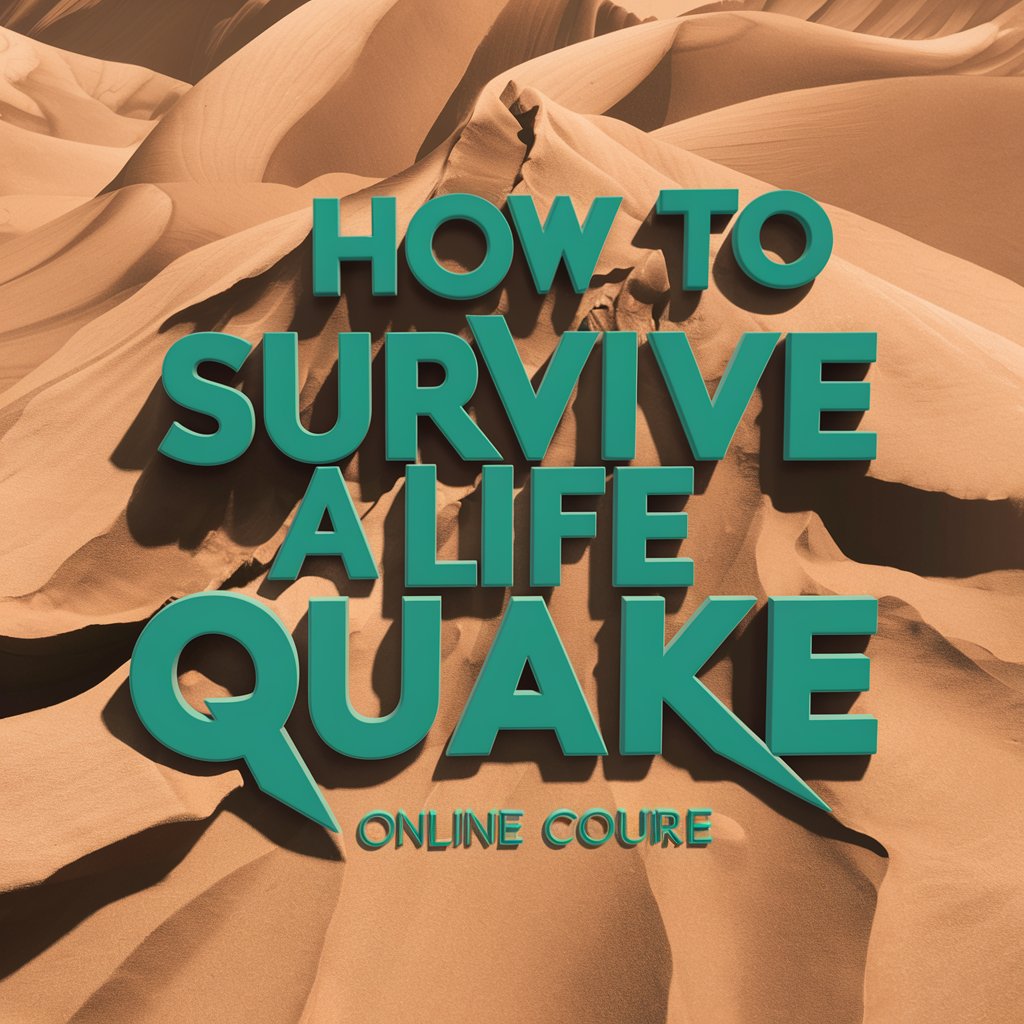Change Your Narrative Identity, Change Your Life
Have you ever stopped to think about the story you tell yourself about your life? Not the one you share at parties or job interviews—the polished, edited self-promotional version—but the one that runs like a voiceover in your head as you reflect on where you’ve been, who you are now, and where you’re headed?
That story has a name. It’s called your self-narrative or narrative identity, and it’s way more powerful than you might think.
We are all storytellers at heart. The stories we tell about our lives help us make sense of what we experience. They shape our sense of self, our decisions, and even our ability to find purpose in what we do. Whether we’re overcoming a challenge, starting fresh, or trying to figure out what comes next, understanding our self-narrative can be the key to getting unstuck and finding new direction.
So, let’s talk about what self-narrative is, why it matters, and how you can use it to get closer to discovering your life purpose.
What is Your Self-Narrative/Narrative Identity?
Narrative identity is the idea that we make sense of who we are by creating stories about our lives. Psychologist Dan McAdams describes it as your narrative identity, an evolving life story that gives your experiences meaning. It’s the way you make sense of the highs, lows, and everything in between. It’s how you weave together your past, present, and future into a cohesive tale that answers the big questions:
- Who am I?
- How did I get here?
- Where am I going?
Think of it like the script of a movie where you are the main character. Your life events are the scenes, the people around you are the supporting cast, and the challenges you face are the plot twists. How you frame those scenes makes all the difference. Are you the hero overcoming adversity? The wanderer searching for meaning? The survivor who turns suffering into wisdom?
Your self-narrative isn’t just about the facts of your life—it’s about how you interpret them.
We create our identity by integrating our life experiences into an evolving story that provides us with a purpose in life. This life narrative integrates our reconstructed past, perceived present, and imagined future. Our stories have characters, imagery, a setting, plots, themes, turning points, challenges, and resolutions and often follow the traditional model of a story, having a beginning (initiating event), middle (an attempt and a consequence), and an end (denouement).
Narrative Identity is important because it helps us
- Make sense of our lives by creating coherence out of our experiences.
- Grow and heal as we reframe challenges.
- Understand and communicate who we are to others.
The Essentials of Narrative Identity:
- It connects the dots: Narrative identity integrates your past, present, and future into a single, coherent story.
- It makes sense of experiences: We reflect on our lives and give meaning to challenges, milestones, and turning points.
- It changes as we grow: Just like any good story, our life narrative evolves as we learn, face new experiences, and reframe old ones.
- It’s shaped by culture: The way we tell our stories—what we highlight, how we frame events—is often influenced by cultural norms and traditions.
A Few Examples:
- Overcoming adversity: A tough experience might be reframed as a “hero’s journey” where you grew stronger because of the challenges you faced.
- For instance: “After my divorce, I walked the Camino de Santiago and discovered my independence and inner strength.”
- Finding purpose: A life change can be seen as answering a deeper calling.
- “Leaving my corporate job to work with horses wasn’t a setback. It was me stepping toward what I was truly meant to do.”
- Reinterpreting setbacks: Sometimes, looking back helps us see difficult events as turning points or lessons.
- “Burning out at work forced me to reevaluate my priorities and rebuild healthier boundaries.”
Why Your Story Matters
Your self-narrative is powerful because the way you tell your story shapes your reality. Let me explain.
Imagine two people who experienced the same thing—say, a career that didn’t pan out.
- One person tells themselves: “I’m a failure. I’m not good at anything, and I’ll never succeed.”
- The other person frames it as: “That job wasn’t the right fit for me. It taught me a lot about what I don’t want, and now I’m ready to pursue something more meaningful.”
Same event, two very different stories. And those stories will shape how each person moves forward.
The first person’s narrative might keep them stuck, weighed down by shame and self-doubt. The second person’s story reframes the experience as a stepping stone—a valuable part of their journey toward something better.
See what I mean? Your story influences how you see yourself, what you believe you’re capable of, and the choices you make next.
Your Narrative Identity and Your Mental Health
Our narrative identity plays a big role in our mental health—people who can turn tough experiences into positive stories tend to feel happier. It also shapes our goals and dreams, guiding how we think about our future and what we want to achieve. When it comes to work, the stories we tell ourselves about our skills and experiences can steer our career choices. Plus, how we handle challenges in our narratives can either build resilience or make things tougher emotionally. Our self-concept and identity are all tied up in these stories, too, and they can even influence how well we do in school. On a broader level, our narratives reflect cultural values and help us fit into our communities. They also affect how we manage our emotions and make decisions in everyday life.
Take our relationships, for example. The stories we tell about our lives affect how we connect with others. For one, they help us understand how we view ourselves and how we think others see us, which can change the way we interact. When we share our real experiences and feelings, it builds trust and makes those connections deeper. Plus, our stories set up expectations for how we want to be treated and what we expect from others. Basically, the narratives we live by play a huge role in shaping the quality of our relationships.
Think about it this way: if you’ve got a story in your head that you’re always the one who gets left behind, you might be super clingy in relationships without even realising it. Or if your narrative is all about being strong and independent, you might have a tough time letting people in or asking for help when you need it. Our stories don’t just affect how we behave; they also influence how we interpret what others do. If your friend doesn’t text you back right away, your personal narrative might lead you to think, “See? Nobody really cares about me,” or it might have you shrugging it off like, “They’re probably just busy.”
When we share our stories with others, it can create an amazing bond. It’s like, “Hey, I’ve been through this stuff too!” and suddenly, you’re connecting on a whole new level.
But it’s not all sunshine and rainbows. Sometimes our narratives can clash with others’ stories, leading to misunderstandings or conflicts. If one person’s story is all about needing lots of alone time, and their partner’s narrative is about always being together, you can see how that might cause some friction.
The good news is that once we’re aware of our narratives, we can work on changing them if they’re not serving us well. It’s like editing our own life story to create healthier, happier relationships.
Life Purpose and Your Self-Narrative
So, where does life purpose come into all this? Well, discovering your purpose often starts with understanding your story.
Life purpose isn’t something you magically stumble upon one day. It’s something you uncover by reflecting on your experiences, connecting the dots, and noticing the themes and values that keep showing up in your life.
Here’s how self-narrative plays a role:
- It helps you identify what matters to you: When you look back at your story, certain themes will stand out. Maybe you’ve always felt drawn to helping others, creating beauty, or seeking adventure. These themes are clues to your values and purpose.
- It reframes challenges as part of your growth: The struggles you’ve faced can become meaningful chapters in your story. Rather than seeing them as failures or setbacks, you can see them as the experiences that shaped who you are and prepared you for what’s next.
- It reveals your unique strengths and gifts: Every good story has a main character with certain qualities that make them who they are. When you reflect on your life, you can identify your own strengths—whether that’s resilience, creativity, empathy, or determination—and how you can use them in a purposeful way.
- It shows you how far you’ve come: Sometimes we forget to acknowledge the progress we’ve made. Your story can remind you of the challenges you’ve overcome and the growth you’ve experienced, which can give you the confidence to take the next step.
Finding out more about narrative identity has had such an impact on my way of thinking that I have decided to add the concept to my Rearing to Get Going in a New Direction online course about finding your life purpose, especially during life transitions.
If you are going through a life transition—like the people I work with on my Camino de Santiago walking retreats or in my online courses—understanding and rewriting their personal story can be a powerful way to move forward. It helps them find meaning in what they’ve been through, make peace with the past, and envision a new, hopeful future.

Author Bio: Dr Margaretha Montagu – described as a “game changer”, “gifted healer”, “guiding light” and “life-enriching author” – is an experienced medical doctor, a certified NLP practitioner, a medical hypnotherapist, an equine-assisted psychotherapist (EAGALAcertified) and a transformational retreat leader who guides her clients through life transitions – virtually, or with the assistance of her Friesian and Falabella horses, at their home in the southwest of France.

Why just survive when you can thrive? Enrol in my How to Survive a Life Quake 7-part online course. Think of it as your step-by-step survival kit for those “what-on-earth-just-happened” moments in life.
References
- Lodi-Smith, J.; Geise, A.C.; Roberts, B.W.; Robins, R.W. (2009). “Narrating personality change”. Journal of Personality and Social Psychology. 96 (3): 679–689.
- McAdams, D (2001). “The psychology of life stories”. Review of General Psychology. 5 (2): 100–122.
- McLean, K.C.; Fournier, M.A. (2008). “The content and processes of autobiographical reasoning in narrative identity”. Journal of Research in Personality. 42 (3): 527–545.
- McLean, K.C.; Pasupathi, M.; Pals, J.L. (2007). “Selves creating stories creating selves: a process model of self-development”. Personality and Social Psychological Review. 11 (3): 262–78. CiteSeerX 10.1.1.433.7582.
- Pals, J.L. (2006). “Narrative identity processing of difficult life experiences: Pathways of personality development and positive self-transformation in adulthood”. Journal of Personality. 74 (4): 1079–1110.
- Woike, B.; Polo, M. (2001). “Motive-related memories: content, structure, and affect”. Journal of Personality. 69 (3): 391–415.
- Baumeister, R.F.; Newman, L.S. (1994). “How stories make sense of personal experiences: Motives that shape autobiographical narratives”. Personality and Social Psychology Bulletin. 20 (6): 676–690.
- Murray, S. L.; Holmes, J. G. (1994). “Storytelling in close relationships: The construction of confidence”. Personality and Social Psychology Bulletin. 20 (6): 650–663.
- Pennebaker, J.W. (2000). “Telling stories: The health benefits of narrative”. Literature and Medicine. 19 (1): 3–18.















